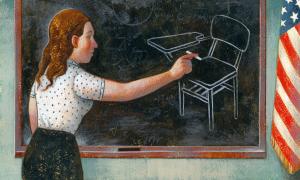2,747 Results
No Gender Cops in Classrooms

Learning for Justice and the Power of Place
Learning for Justice is a community education program of the Southern Poverty Law Center (SPLC) that cultivates and nurtures dialogue, learning, reflection and action from those most proximate to and impacted by injustices in the South. By centering learning to inform action for liberation and justice, LFJ will complement the SPLC’s work to increase power and capacity for multiracial, inclusive democracy.
- About Learning for Justice
- Our Stories - The Power of Place
- Survival, Resistance and Resilience
The Learning Center and Civics for Democracy
Introducing LFJ’s Learning Center, our new online popular education space for everyone (adults, youth and children), offering learning for civic and political action. The Learning Center continues our Community Justice Sites programming in our Southern states and extends our resources to a national audience. This new landing page and menu provides links to our new learning resources and series.
- Our Votes Matter: Action Steps in Planning to Vote
- Civics for Democracy
- The Learning Center
History and the Power of Place
Effective Classroom Facilitation Is Critical to Psychologically Safe and Supportive Learning Spaces
During this back-to-school season, let’s commit to ending school pushout and keeping children in the classroom. Effective classroom facilitation is critical to supporting student learning and lessening behavior concerns. We offer this classroom facilitation model with practices to help educators respond to student behavior with the goal of ensuring well-being and keeping learning on track rather than maintaining absolute control. It focuses on children’s development instead of punishment and offers proactive and inclusive practices to create affirming learning spaces.
- Inclusive Classroom Facilitation Model
- Creating School Culture That Nurtures Young People
- Supporting Students from Immigrant Families
Integrating for Equity

Self-care Can Be Social Justice
